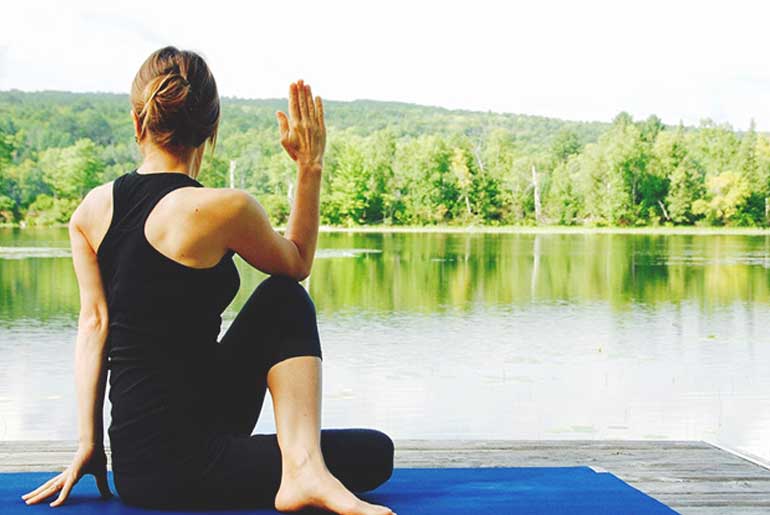Yoga exercises encompass a wide range of postures, breathing techniques, and meditation practices that promote physical, mental, and emotional well-being. These exercises include poses like the Mountain Pose for posture and balance, Cobra Pose for spine strength, and Sun Salutations for flexibility and cardiovascular health. Pranayama, or controlled breathing exercises, can reduce stress and regulate heart rate. Meditation and relaxation techniques, such as mindfulness and Yoga Nidra, foster mental calmness and reduce risk factors like stress and anxiety associated with heart disease.
A yogic diet and lifestyle that prioritize whole, plant-based foods and hydration further contribute to heart health. Regular practice, guided by a qualified instructor if needed, enhances the effectiveness of yoga exercises in reducing heart disease risk factors, making yoga a valuable component of a heart-healthy lifestyle.
Yoga can be a valuable addition to a heart-healthy lifestyle by helping reduce risk factors associated with heart disease.
Here are some yoga exercises and practices that may help:
Pranayama (Breathing Exercises):
- Deep Breathing: Sit or lie down comfortably, close your eyes, and take slow,
- deep breaths. Deep breathing can help reduce stress and lower blood pressure.
Anulom Vilom (Alternate Nostril Breathing): This breathing technique can balance the autonomic nervous system, which can help regulate heart rate and blood pressure.
Asanas (Yoga Poses):
- Tadasana (Mountain Pose): Stand tall with your feet together and your arms at your sides. This pose improves posture, balance, and circulation.
- Vrikshasana (Tree Pose): Stand on one leg with the other foot resting on the inner thigh of the standing leg. This pose can help improve balance and focus.
- Bhujangasana (Cobra Pose): Lie on your stomach, place your hands under your shoulders, and lift your chest off the floor. Cobra pose can strengthen the spine and open the chest.
- Surya Namaskar (Sun Salutation): A series of 12 yoga poses performed in a sequence, Sun Salutations help improve flexibility, strength, and cardiovascular health.
Meditation and Relaxation Techniques:
- Mindfulness Meditation: Practicing mindfulness meditation can reduce stress, anxiety, and depression, all of which are risk factors for heart disease.
- Progressive Muscle Relaxation: This technique involves tensing and then relaxing different muscle groups, promoting physical and mental relaxation.
Yoga Nidra:
Also known as yogic sleep, this guided meditation practice helps reduce stress and improve sleep quality, which can indirectly benefit heart health.
Yogic Diet and Lifestyle:
Incorporate principles of a yogic diet, which includes eating whole, plant-based foods, staying hydrated, and avoiding processed foods, excess salt, and sugar.
Regular Practice:
Consistency is key. Aim to practice yoga regularly, even if it’s just a few minutes each day. Gradually increase the duration and intensity of your practice as you become more comfortable.
Consult a Yoga Instructor:
If you’re new to yoga or have specific health concerns, consider consulting a qualified yoga instructor or therapist. They can tailor a yoga program to your needs and ensure you’re performing poses correctly to prevent injury.
Remember that while yoga can be a helpful part of a heart-healthy lifestyle, it should complement other preventive measures such as a balanced diet, regular exercise, and medical advice from your healthcare provider. Always consult with a healthcare professional before starting a new exercise routine, especially if you have existing heart conditions or other health concerns.
Disclaimer:
The information contained in this article is for educational and informational purposes only and is not intended as a health advice. We would ask you to consult a qualified professional or medical expert to gain additional knowledge before you choose to consume any product or perform any exercise.








